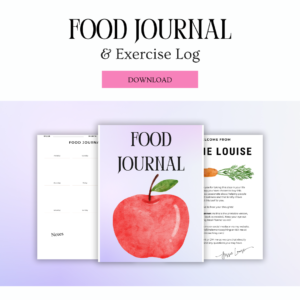The Psychology of Microdosing
Introduction to Microdosing
The concept of microdosing involves taking very small amounts of psychedelic substances, such as LSD or psilocybin, to improve mental health and cognitive function without inducing significant alterations in consciousness. This practice has shown promise in preliminary research for its potential to enhance creativity, reduce symptoms of depression and anxiety, and improve overall well-being. The 5th Element Coaching model, which integrates mindfulness, cognitive-behavioural techniques, physical wellness, emotional intelligence, and spiritual growth, provides a comprehensive framework for personal development. This article examines how microdosing can be effectively incorporated into this coaching paradigm to maximize its benefits.
Top Resources on the Psychology of Microdosing
A Beginner’s Guide to Microdosing and Growing Psilocybin Mushrooms at Home: Kindle ebook
Microdosing with Amanita Muscaria Paperback Book
A Really Good Day Audiobook
Current Literature Review of Psychology of Microdosing
Microdosing and Cognitive Enhancement: Research suggests that microdosing can lead to improvements in cognitive flexibility, creativity, and problem-solving skills. Prochazkova et al. (2018) found that microdosing psychedelics resulted in enhanced divergent and convergent thinking, essential components of creativity. Additionally, Fadiman and Korb (2019) reported that participants experienced improved focus, mood, and productivity.
Microdosing and Emotional Well-Being: Studies indicate that microdosing may help alleviate symptoms of depression and anxiety. Polito and Stevenson (2019) observed that individuals who practiced microdosing reported significant reductions in negative mood and an increase in positive mood and mindfulness. These findings align with anecdotal reports suggesting that microdosing can enhance emotional resilience and promote a more balanced emotional state.
Mechanisms of Action: The potential mechanisms underlying the benefits of microdosing are not fully understood, but several hypotheses have been proposed. Psychedelics are known to interact with serotonin receptors in the brain, particularly the 5-HT2A receptor, which plays a crucial role in mood regulation and cognitive processes. By modulating this receptor activity, microdosing may promote neuroplasticity, the brain’s ability to reorganize itself by forming new neural connections (Ly et al., 2018).
Integration of Microdosing with 5th Element Coaching
Mindfulness: Microdosing can enhance mindfulness practices by promoting a heightened sense of presence and awareness. This synergy can help clients become more attuned to their thoughts and emotions, facilitating deeper self-reflection and insight.
Cognitive-Behavioural Techniques: The cognitive enhancements associated with microdosing can support cognitive-behavioural interventions by improving clients’ ability to identify and reframe negative thought patterns. Increased cognitive flexibility may also help clients adopt more adaptive behaviours and coping strategies.
Physical Wellness: Microdosing has been reported to improve physical sensations and bodily awareness, which can complement physical wellness practices within the 5th Element Coaching model. Enhanced bodily awareness can support clients in developing healthier lifestyle habits and improving their overall physical health.
Emotional Intelligence: The emotional benefits of microdosing, such as reduced anxiety and improved mood, can contribute to the development of emotional intelligence. Clients may find it easier to manage their emotions, understand the emotions of others, and navigate interpersonal relationships more effectively.
Spiritual Growth: Many individuals report experiencing a greater sense of connection and spirituality while microdosing. This can align with the spiritual growth component of 5th Element Coaching, helping clients explore their spiritual beliefs and practices in a supportive and integrative manner.
Academic Discussion of Psychology of Microdosing
While the potential benefits of microdosing are promising, it is essential to approach this practice with caution. The legal status of psychedelic substances varies by region, and there are potential risks and side effects to consider. Furthermore, the evidence base for microdosing is still emerging, and more rigorous scientific research is needed to fully understand its effects and mechanisms.
For those who choose to incorporate microdosing into their personal development journey, it is crucial to do so under the guidance of a knowledgeable coach or therapist. The 5th Element Coaching model provides a comprehensive framework that can help clients integrate the benefits of microdosing into their broader wellness goals.
Final Word on The Psychology of Microdosing
Microdosing represents a novel and potentially transformative approach to enhancing cognitive and emotional well-being. When integrated with the 5th Element Coaching model, microdosing can support clients in achieving greater mindfulness, cognitive flexibility, emotional resilience, and spiritual growth. As research on microdosing continues to evolve, it holds the potential to become a valuable tool in the holistic coaching repertoire.
Did you enjoy this post? Check here for more articles on Holistic Wellness.
References
- Fadiman, J., & Korb, S. (2019). Microdosing psychedelics: Personality, mental health, and creativity differences in microdosers. Journal of Psychoactive Drugs, 51(1), 27-36.
- Ly, C., Greb, A. C., Cameron, L. P., Wong, R. J., Barragan, E. V., Wilson, P. C., … & Olson, D. E. (2018). Psychedelics promote structural and functional neural plasticity. Cell Reports, 23(11), 3170-3182.
- Polito, V., & Stevenson, R. J. (2019). A systematic study of microdosing psychedelics. PLOS ONE, 14(2), e0211023.
- Prochazkova, L., Lippelt, D. P., Colzato, L. S., Kuchar, M., & Hommel, B. (2018). Exploring the effect of microdosing psychedelics on creativity in an open-label natural setting. Psychopharmacology, 235(12), 3401-3413.











